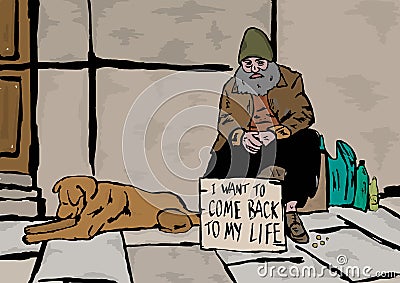Darla Mulder
LIT 130
April, 2017
Libraries and the Homeless

Homeless people exist in every city, you could see a few of them every day. They are homeless for individual reasons -- throughout the world. None of them planned on it.
A homeless person can be anyone. Functionally illiterate 25 year-olds who have no support system have this misfortune.. A 45-year-old college educated person with a large family suddenly is in their car. Chronic longevity or perpetual, a rare occurrence or a sudden, large loss, it exits. Sometimes it is in -you-face, asking for a handout, some difficult to spot. Some are not counted at all.
I can't imagine not knowing where I will rest my head, how to pay for my next meal, what I must do to stop drowning in bad luck.
I can't imagine not knowing where I will rest my head, how to pay for my next meal, what I must do to stop drowning in bad luck.
What can we do? What entity can help? Even though the thought of being homeless horrifies us, we have problems assisting others who do experience homelessness.
Practically all have not been able to carry their ways and means of information needs, nor can they afford information, books, or record directions/instructions. A library would normally hold civic information for them or ways to help them find resources.
Any patron who walks into the library is treated with the same cordiality, respect, and all have to obey the rules. Different libraries abide by different rules in regard to their protocols handling a homeless person wandering in for the first time.
Some work outside normal thinking and use their imagination.
There are handfuls of people in different geographical areas who see an opportunity to bring several civic entities together.
A man named Colbert Nembhard in New York has a partnership with a homeless shelter.
In September of 2016, according to a New York Times article, (from Opposing Viewpoints) the Library of Congress acknowledged that a shelter was a best place to assist those who had low literacy. At this particular venue, even though many who had fallen off the secure track of roofs-over-the head, they still LOVED books. There was a bookmobile that would roll up to the shelter every morning, calling it a "rolling bag." Mr Nembhard wants the kids to have a lifelong relationship with libraries, and therefore bringing to library to them offered them an imaginary refuge.
 An exploratory study exists and can be found in the Journal of Poverty and Social Justice, 2012, written and compiled by K.A. Anderson and C.D. Simpson. In the study a public library staff helps homeless while in the midst of needs and concerns.
An exploratory study exists and can be found in the Journal of Poverty and Social Justice, 2012, written and compiled by K.A. Anderson and C.D. Simpson. In the study a public library staff helps homeless while in the midst of needs and concerns.
After being surveyed, it was found that the library staff needed more training to address the specific and complex needs of homeless people. It is hoped that in the future, additional training can help staff know exactly how to link these unfortunate beings with the help they need.
After being surveyed, it was found that the library staff needed more training to address the specific and complex needs of homeless people. It is hoped that in the future, additional training can help staff know exactly how to link these unfortunate beings with the help they need.
In London, a Quaker Homeless Action set up a mobile library in 1999 and lends books to more than a thousand homeless people a year. Everyday, more than 30 gather in the churchyard and receive a morning allotment of used books for the homeless to grasp and take comfort in. From there, the homeless are able to share information with one another, ask for information, and have been able to shed the feeling of homelessness, isolation and to spark companionship.
Public libraries can support families experiencing homelessness, according to an article by V.C. Terrile, in the Journal of Children & Poverty. Library providers and agencies can operate together, collectively, to support many various needs. The article discusses how homelessness is the result of many interconnected social and economic conditions. A library stores information in forms of city, county, state, and national assistance plans.
In San Diego County, homeless are regarded for safety just outside the City Library:
See this video: https://youtu.be/s828AnBUAM0
However, there is an old library that city does not want for the homeless shelter. This is an article about it. The local television news had it on April 25th, 2017.
http://www.sandiegouniontribune.com/news/politics/sd-me-homeless-downtown-20170425-story.html
https://youtu.be/FYiEEhhrFh4
Bibliography Below:
Anderson, K.
A., Simpson, C. D., & Fisher, L. G. (2012, June). The ability of public
library staff to help homeless people in the United States: Exploring
relationships, roles and potential. Journal of Poverty & Social Justice, 20(2), 177-190. doi:10.1332/175982712X652078
Stewart, N. (2016, November 25). Devoted to Teaching Homeless Children a Lasting Love of Books. New York Times, p. A24(L). Retrieved from http://link.galegroup.com.ezproxy.palomar.edu/apps/doc/A471361709/OVIC?u=cclc_palomar&xid=ff70b818
Terrile, V. C. (2016, September). Public library support of families experiencing homelessness. Journal of Children & Poverty, 22(2), 133-146. doi:10.1080/10796126.2016.1209166

No comments:
Post a Comment